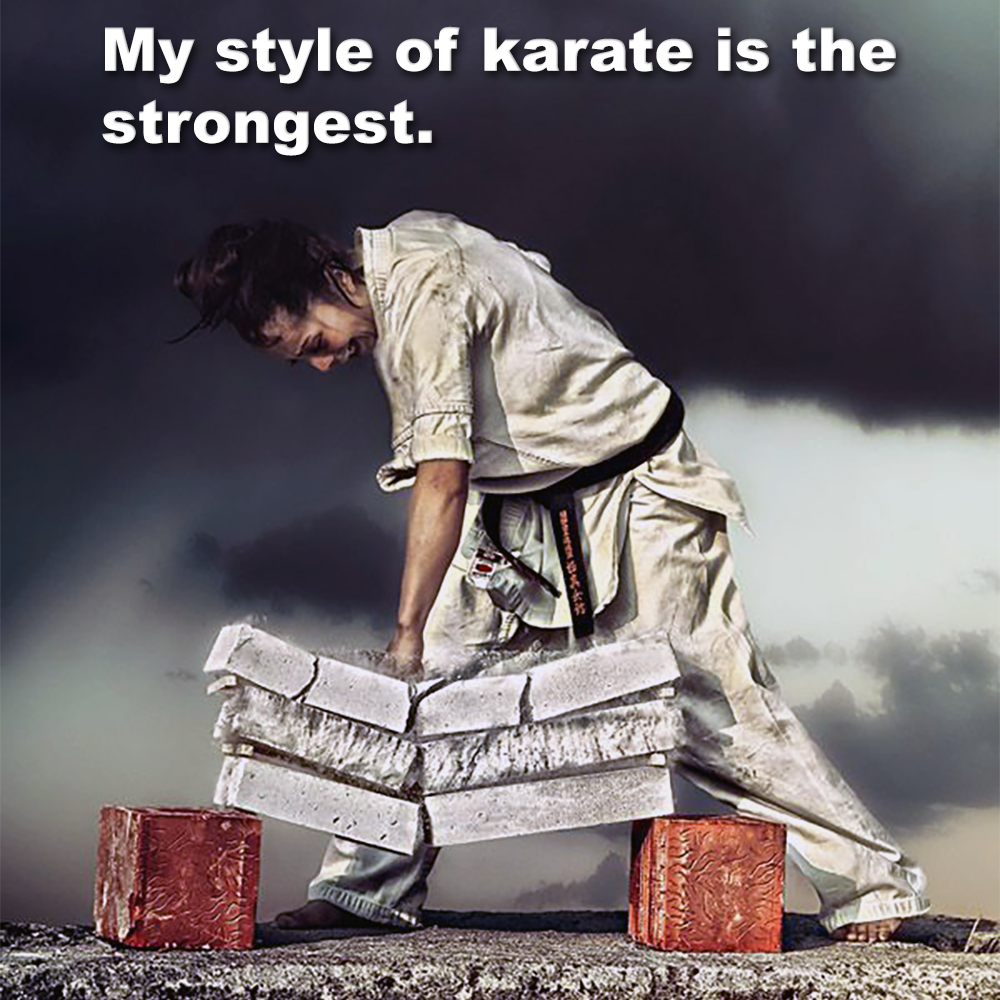
Recently someone tried to argue with me that their style of karate was the strongest. Informing me that because their athletes were successful in competition going back to the 1960’s, it was the ultimate, the strongest, and the best martial art.
.
Karate, has evolved into a diverse and widespread discipline. It can be practiced by a multitude of people from all walks of life….. from a very young age, to a not so young age.
.
It promotes physical fitness, mental discipline, sport or self-defense, there’s something for everyone. But a common misconception prevails – the belief that one karate style is inherently stronger than others.
.
The very notion of one martial art being inherently stronger than another is flawed. Because each style, born from distinct cultural contexts and historical needs, excels in different areas.
.
Comparing different styles head-on, is akin to comparing apples and oranges.
.
Each style has its own strengths and weaknesses, demanding specific skills, strategies and philosophies.
.
Whether you’re a traditional karate practitioner, MMA fighter, combat fighter or any other competition martial artist, you train for are a very specific arena, dealing with very specific parameters. Context is everything.
.
To understand this misconception, you have to understand that the diversity within karate is a testament to its adaptability and inclusivity. Yet some practitioners cling to the notion that their style is superior.
.
The fallacy of superiority arises from a limited perspective that fails to recognize the richness of the martial arts. No single style can claim absolute superiority over others.
.
Karate is a dynamic discipline that allows for personal growth and adaptation, and the effectiveness of a practitioner lies in their dedication, skill, and understanding, rather than the particular style they practice.
.
Ultimately, the “my karate is stronger than yours” mentality stems from a misunderstanding of what martial arts truly represent.
.
It is not about boasting, domination, or proving whose style reigns supreme. It is a journey of self-discovery, self-improvement, and honing your skills into instruments of resilience, into excelling at sport, or being competent at self-defense.
.
When you shift your focus from the battle of styles to dedication and understanding of the discipline you practice, you move beyond the illusion of supremacy and start to unlock the true potential of your own practice.
.
Embracing diversity is crucial, as varied styles bring unique insights, techniques, and training methodologies. Cross-training and maintaining an open mind can significantly improve your skills in areas where you may currently lack proficiency.
.
The statement “my karate is stronger than yours” is not only factually inaccurate but also hinders the understanding of what martial arts truly mean.
.
Perhaps some individuals might benefit from expanding their horizons beyond their limited understanding of the martial arts they practice.
.
The art is irrelevant – it’s the person, how they’ve trained, their abilities, skills, their mindset in a difficult or challenging situation, those are the qualities that count.
.
There is no magic art that makes you superior to someone else. Recognizing the strengths of each style, developing your own adaptability, and embracing the true spirit of the martial way – that is where true strength lies.
.
.
